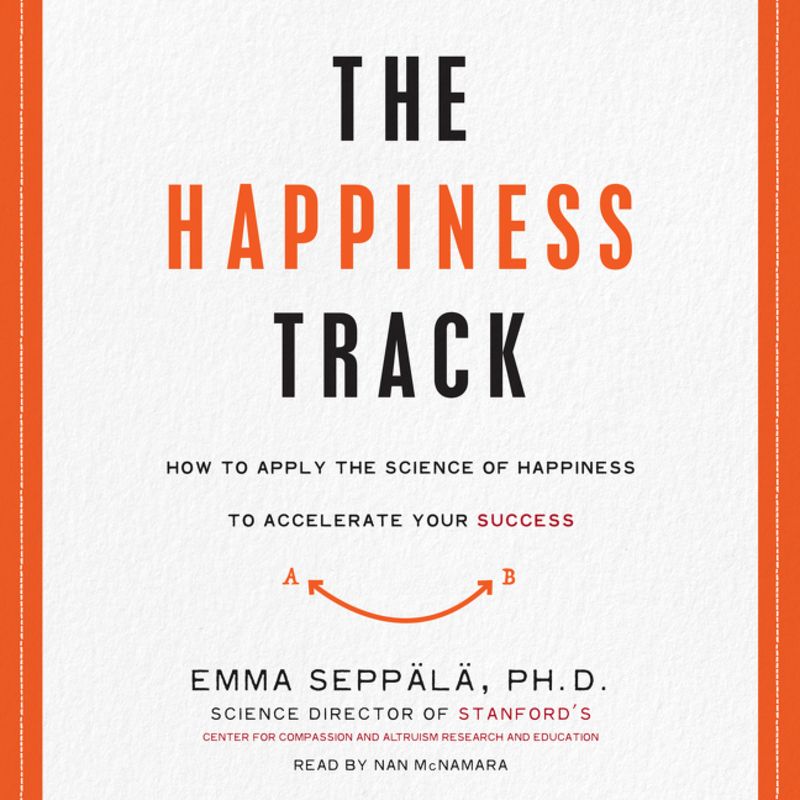The Happiness Track
de
citită de Nan McNamara
Asculți nelimitat
5h 58m

Adaugă la wishlist
Despre The Happiness Track carte
A leading expert on health psychology, well-being, and resilience argues that happiness is the key to fast tracking our professional and personal success.
Everyone wants to be happy and successful. And yet the pursuit of both has never been more elusive. As work and personal demands rise, we try to keep up by juggling everything better, moving faster, and doing more. While we might succeed in the short term, it comes at a cost to our well-being, relationships, and, paradoxically, our productivity. In The Happiness Track, Emma Seppala, thescience director of the Center for Compassion and Altruism Research and Education at Stanford University and director of the Yale College Emotional Intelligence Project, explains that our inability to achieve sustainable fulfillment is tied to common but outdated notions about success. We are taught that getting ahead means doing everything that’s thrown at us (and then some) with razor-sharp focus and iron discipline; that success depends on our drive and talents; and that achievement cannot happen without stress.
The Happiness Track demolishes these counter-productive theories. Drawing on the latest findings from the fields of cognitive psychology and neuroscience—research on happiness, resilience, willpower, compassion, positive stress, creativity, mindfulness—Seppala shows that finding happiness and fulfillment may, in fact, be the most productive thing we can do to thrive professionally. Filled with practical advice on how to apply these scientific findings to our daily lives, The Happiness Track is a life-changing guide to fast tracking our success and creating the anxiety-free life we want.
În acest moment nu există recenzii pentru această carte
Emma Seppala

EMMA SEPPÄLÄ, PH.D., is the science director of the Center for Compassion and Altruism Research and Education at Stanford University, the founder of the popular news site Fulfillment Daily, and a frequent contributor to Harvard Business Review and Psychology Today.
MAI MULT
Nan McNamara







